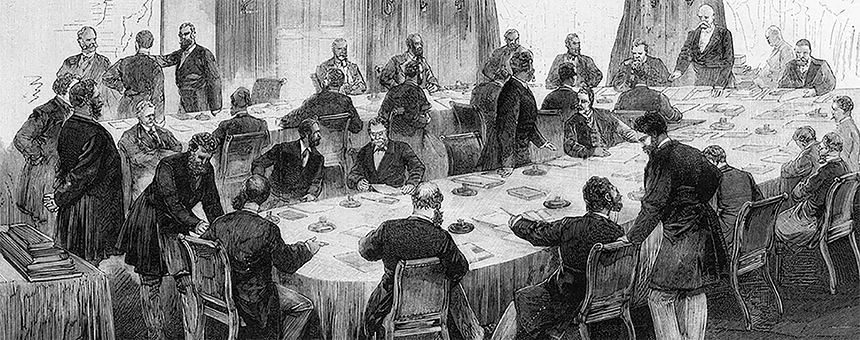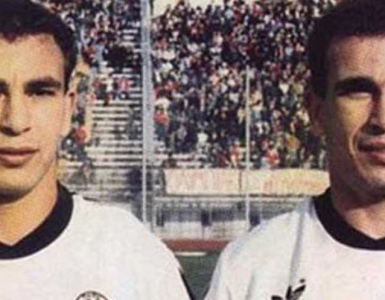FRAME: From Gaza to Africa, colonial cartography has turned land into property and people into populations to be managed. True liberation means dismantling this order, not redrawing its lines…
By Jwan Zreiq
Our reliance on maps and borders as the primary frame for thinking about Palestine and for imagining solutions narrows what we believe the true meaning of liberation can be.
In the history of mapping this land, maps have never been neutral; they have been instruments of dispossession and part of a global history of colonialism. To see Palestine only through the lens of cartography is to remain bound by the very logic that is designed to contain us, and to an ever-shrinking Palestine.
Two points follow. The first is at the level of space: mapping renders the land into an object of control from above, something to be divided, surveilled, and possessed. The second is at the level of power: the production of space as sovereign territory installs a relation of domination, one in which sovereignty is not collective self-determination, but a hierarchy of rulers and ruled.
The very grammar of sovereignty traps us in the paradigm of obedience and domination, rendering us unable to imagine ourselves as creative actors beyond being victims who are acted upon, or as protestors who act against.
Believing in liberation otherwise is to step outside the borders altogether, not only the borders drawn around Palestine, but those imposed by nation-states and imperial orders everywhere. It is to see the Palestinian struggle not as an isolated question of territory, but as part of a wider confrontation with colonialism, racial capitalism, and Western imperialism.
Our liberation must be unbound from the cartographic imagination that fragments the world into sovereignties, and, instead connect to struggles that envision life beyond dispossession altogether. A free Palestine, then, is not only a redrawn map; it is new forms of relation that no longer reduce us to rulers and ruled, limit us to victims or resistors, but imagine us as communities that create, live, and determine life together.
If Gaza today is the most brutal expression of containment, it is because the Strip is the map taken to its logical extreme. Two million people, hemmed in behind walls and watchtowers, rendered as a population to be managed rather than as a people who belong.
Since 2008, Israeli officials have literally calculated the daily caloric intake allowed for Gaza’s residents, reducing life to numbers and spreadsheets. Food itself becomes a weapon.
This is not only a local tragedy; it is a global logic. The partitioning of life into enclaves and territories, the sealing off of populations, the calculation of who may live and who must die are the operations of colonial mapping across the world.
Africa carries the deepest scars of this logic. The Berlin Conference of 1884 divided a living continent with rulers and ink, transforming histories of belonging into abstract lines of possession. Communities were split apart, nations were forced into existence, and sovereignties were fabricated for empire. The violence did not end with independence because the borders themselves remained in place, and with them, the economic dependency, extraction, and militarised policing that colonialism required.
To connect Palestine with Africa is not metaphorical; it is recognition. Gaza and the continent share the same cartographic wound: the conversion of land into an object of imperial ownership, and of people into populations to be controlled. The border, whether as a wall in Rafah or as a line across Africa, is not simply a marker of separation. It is a weapon that organises dispossession and forces movement to install domination.
Liberation, then, cannot be limited to the redrawing of maps or the recognition of sovereignties. It must mean dismantling the entire order that made borders the condition of political life.
A free Palestine, like a free Africa, must refuse the colonial cartography that sought to erase them and instead build relations that are uncontainable: relations of belonging, creation, and collective determination.
This is the difference between the indigenous relation to land and the colonial one. The indigenous person says: I belong to the land. The coloniser insists: the land belongs to me. This is the fundamental difference. To forcibly remove a people from their land is to sever that belonging and to attempt to make life unlivable until they depart.
Although the critique of sovereignty and borders is essential, it does not mean ignoring the immediate and material needs of people living under siege. For Palestinians in Gaza, the struggle for survival—for food under the manmade famine by Israel, for water, for freedom of movement, for medical care and safety—is not abstract.
These demands for tangible political rights are urgent, and they are a form of resistance in themselves. But we must not confuse the tools of survival with the full vision of liberation.
In fact, imagining a life beyond containment is not a luxury; it is a necessity born from the conditions of siege.
The deeper critique of colonial borders strengthens, rather than undermines, the demand for dignity and justice in the present.
* Jwan Zreiq is a Palestinian writer based in Amman exploring systems of power, exile, and resistance through personal and political essays
Comment
MOMENT OF TRUTH FOR ANC
Berating corrupt, lazy and arrogant councillors who failed to serve and deliver essential services to the people who voted them into power, President Cyril Ramaphosa has sounded a death knell for the glorious movement which has destroyed itself over the past 30 years through patronage and lack of discipline, amongst others.
Addressing nearly 4000 ANC councillors from across the country at a crucial meeting at the FNB stadium in Johannesburg to prepare for the 2026 local government elections, Ramaphosa warned the councillors that if they failed to serve their communities – as promised – the ANC was as good as dead. The meeting, he added, was a turning point for the organization which was encountering angry protests from communities across the country almost daily for failing to provide essential services including the most important commodity – water.
Ramaphosa attributed failures by ANC municipal councillors to corruption, arrogance, laziness and patronage. The fight for positions was also one of the reasons that led to the failure by these municipalities to deliver services. These councillors were also seldom communicating with communities in their respective wards especially in the townships.
Another issue that adversely affected service delivery was complacency and failure by most, if not all, councilors, to keep to promises they made to members of the public. Councillors seldom call ward meetings to discuss and update communities about progress and problems they were encountering and this resulted in their failures. One of the reasons why this was not happening is because most of these councilors were not even staying in the areas where they had been elected to serve. Most, if not all of them, stay in affluent suburbs and did not know what was happening in their own wards. Ramaphosa has warned that councillors needed to do what they have to do – to work hard and service the people they represented. Failure to do so, he added, would mean death to the ANC. He urged councillors to take leaf from DA -countrolled municipalities which were efficient in the provision of services in their areas. This was in contrast to the vast number of corruption – riddled municipalities controlled by the ANC.
We hope the ANC councillors who had ears at the meeting had taken the President’s warning in a very serious light. Failure by the organization to win support in next year’s local government elections might be the end of their jobs as councillors. For the record, the ANC in the 2006 local government elections secured 66,3 percent of the votes. This figure shockingly dropped to 45,59 percent in 2021. This drop followed several reasons that included corruption, arrogance and patronage and lack of discipline. Protecting comrades who had been fingered in corrupt activities was also one of the main factors that repelled voters from supporting this once glorious movement.
Ramaphosa said it was hugely painful each time the Auditor-General submitted her report about councillors that did their best and often, none of these were ANC councillors. They were councillors in DA-controlled municipalities.
The President has issued a stern warning to ANC councillors. They either deliver or start writing the ANC orbituary.


































